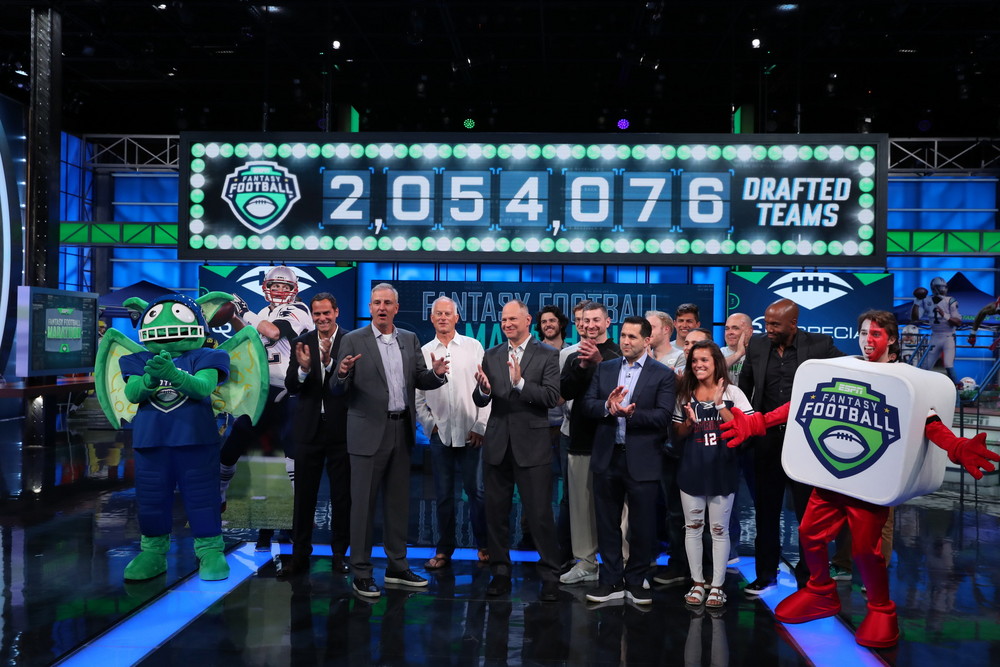How Fantasy Football has Changed Football Culture Forever
January 7, 2019
In 1962, a man by the name of Wilfred Winkenbach was sitting in a downtown Manhattan hotel. Sitting with two of his close friends, Winkenbach (below) pitched a game idea revolving around his beloved football. After the three men worked all night, the trio realized that what they had created was something special. And so, the very first fantasy football league was born. 56 years later, Winkenbach’s brainchild of fantasy football has become a staple for football fans hardcore and casual alike as one of the most predominant sports games in the world.

Photo: ESPN.com
According to the Washington Post, an estimated 59 million people played fantasy football this year in the United States and Canada. These numbers are an all-time high, and have continually grown every year since its creation.
The preparation for a fantasy season has become a month long holiday for football culture, with dozens of sports publications making special editions of their magazines previewing everything a player would want to know. ESPN has begun an annual “Fantasy Football Marathon” (below), which consists of 29 straight hours of experts and analysts giving viewers their rankings and advice before their drafts.

Photo: ESPNMediaZone.com
Some might ask, why is this? Why are nearly 60 million people playing an imaginary game? The answer is simple: the game of fantasy football has changed the way the fans view the NFL, and has helped to form relationships that otherwise would completely cease to exist.
Say for example, you’re a fan of an NFL team that is not doing very well. Your team is going through a rough season or a rebuilding process that is producing a lot of losing. This may force you to lose interest in the NFL as a whole, but then fantasy football comes in. When you have a fantasy team, you are guaranteed to have vested interest in all the players on your roster. Now you are happily and eagerly paying close attention to tons of different teams, and can still enjoy football Sundays.
Speaking of Sundays, it seems as if fantasy sports has changed the dynamic of Sunday afternoon. The whole day plays out like a full-blown event each and every week. 1:00 ET has become the universal time for making sure your lineup is set, with players sweating over who to play and who to sit. Television networks air shows in the morning offering “expert advice” before the 1:00 start time. Then during the games, the ticker at the bottom will constantly be updating viewers of fantasy scores of every player around the league.
When it comes to the fantasy leagues themselves, their presence has influenced the lives of millions and created relationships that would otherwise be impossible. Perhaps the most predominant example comes from the workforce. In an office setting or a desk job, employees and bosses alike can come together through fantasy football and become closer. This also gives the whole office a competitiveness and something to bond over each day during the long work week.

Photo: homelandmagazine.com
Popular traditions have emerged among leagues to keep them even more entertaining and engaging. Nowadays, most members of annual leagues will contribute money to a pot, with the spoils going to the first place finisher of the league. For more tightly-knit leagues, a punishment for the last place finisher has become wildly popular. Watching your friend wave an “I suck at Fantasy Football” sign on the side of the street never gets old.
All in all, the crazy world of fantasy football has become a staple for pigskin fans everywhere. With its pure unpredictability and ability to bring people together unlike anything before it, the game of fantasy has transcended football season forever.






